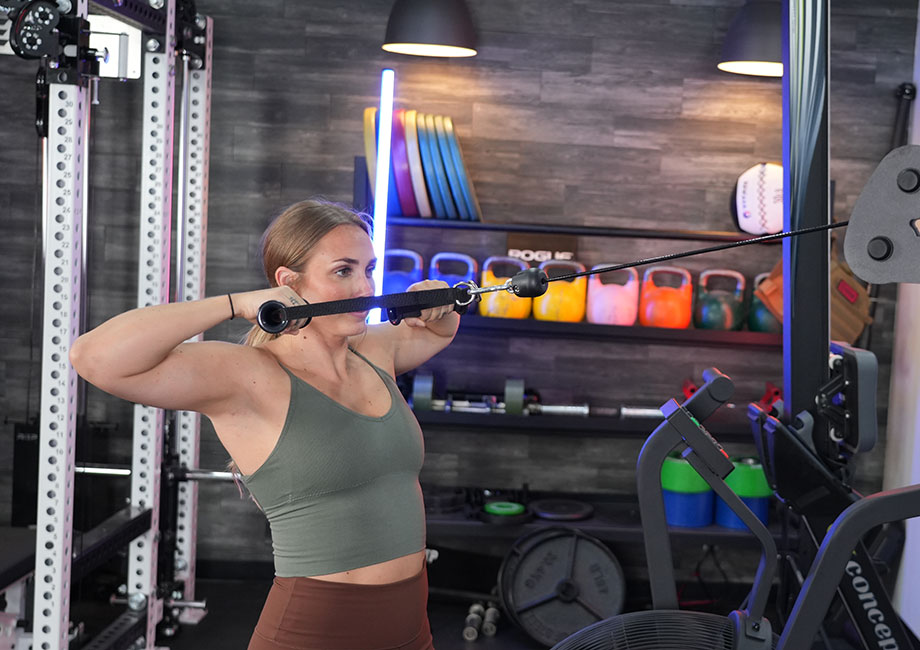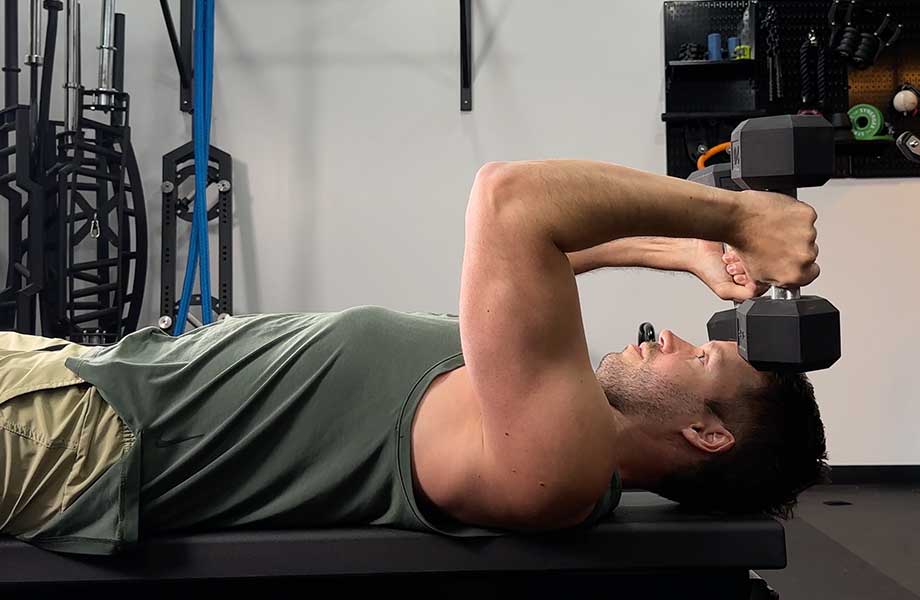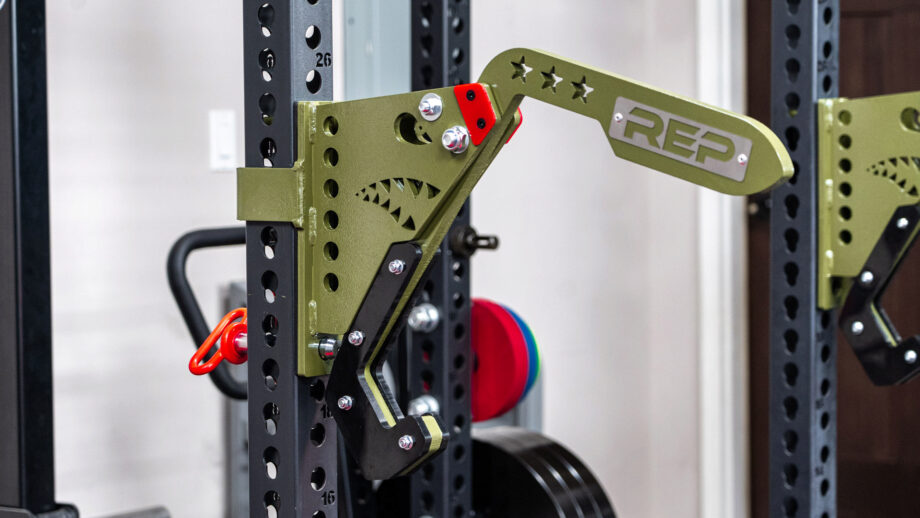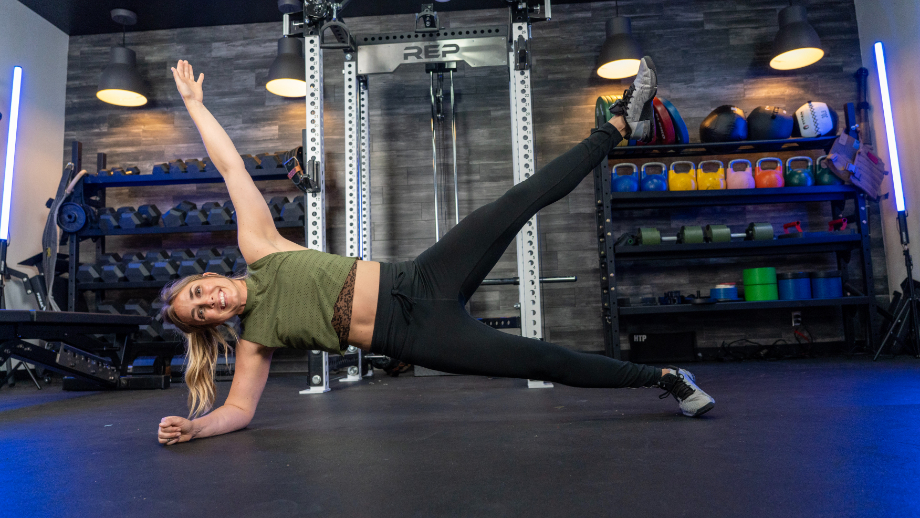Face pulls seem like a strange name for an exercise because why would you want to pull anything toward your face? Coffee and food being the obvious exceptions. But as odd as the name is, face pulls are one of those exercises all lifters need to do in some way, shape, or form.
Why?
Face pulls are as close to isolation exercise for the upper back as there is. The upper back, made up of the rear delts, trapezius, and rhomboids, plays an essential role in the health and mobility of your entire shoulder region. Upper back size, strength, and length are crucial factors in keeping the spine neutral under load and maintaining good posture.
This makes face pulls a great pairing with exercises such as push-ups, deadlifts, overhead press, and bench press. Use them as a warmup, or as part of your strength training routine. Here, we’ll dive into all things face pull so you will get the best out of this great movement.
How To Do The Face Pull
Note: This describes the cable pulley machine variation. You can perform face pulls with resistance bands as well.
- For a cable face pull, set the cable machine at shoulder height with a rope attachment.
- Grip the rope with an overhand grip with your thumbs up.
- Walk back until your arms are extended and you feel a stretch in your upper back.
- Get into an athletic position engaging the core and glutes with your shoulders down and chest up.
- Squeeze your shoulder blades together as you pull the rope toward your face.
- Pause for a second, slowly return to the starting position, reset, and repeat.
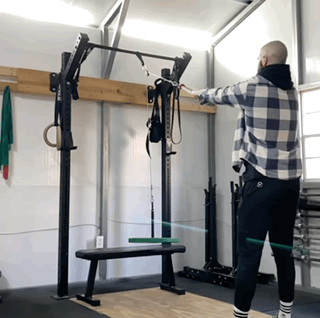
Trainer Tips for Form
Being a certified personal trainer who has spent way too much time in gyms, I’ve seen significant variation in face pull form. Some good, some bad, and some downright ugly. There will always be variations from lifter to lifter, but to get the best out of this lift, follow these form tips.
RELATED: Best Back Exercises
Pay Attention To Setup
You can and should vary the height at which you perform face pulls, but one non-negotiable is posture. Setting up with your shoulders down, chest up, and spine neutral will ensure you’ll target the upper back and not the upper traps.
Range of Motion
Walking far enough away from the anchor point with elbows extended and shoulder blades fully protracted ensures you’ll perform a full range of motion to get the best out of this exercise.
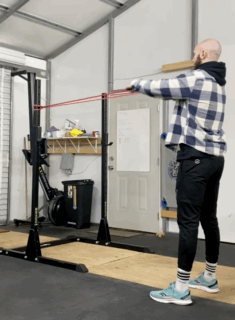
Neutral Wrists
In the most common variations, the cable and resistance band face pull, use an overhand neutral grip. The grip width may vary from person to person, but what must not change is keeping the wrists neutral.
Upper Body Stable
Engaging the core and glutes ensures you keep the upper body stable, so the movement comes from the upper back, not your torso swaying back and forth.
Common Face Pull Mistakes
Don’t overload this movement! As with most exercises, start with lower weight and gradually increase as you get stronger.
The face pull is a simple exercise to perform and one that can be done for higher volumes for added size and strength. But there are a few things to watch out for to get the best out of this excellent exercise.
Shrugging The Shoulders
A common mistake with many pulling exercises, including face pulls, is the movement coming from the wrong place. Instead of pulling with their biceps and back, some lifters will shrug the upper traps to start the pull. This is a no-no—you don’t want to turn a face pull into a shoulder exercise. To stop this from happening, keep the shoulders down and chest up the entire time.
Too Much Weight
Progressive overload is vital for size and strength gains, but with moves such as face pulls, using too much weight means the range of motion gets shortened, momentum is used, and the focus of the working muscles is lost. Face pulls are not an absolute strength exercise but an accessory for other heavy-weight exercises.
As with most exercises, start with lower weight and gradually increase as you get stronger. You can also add more reps instead of increasing the weight.
Don’t Drop The Elbows
Your elbows need to be at shoulder height the entire time, and if they are not, you will target the wrong muscle groups and be at a greater risk of injury. Keep the elbows high and moving outward throughout the movement.
Face Pull Variations
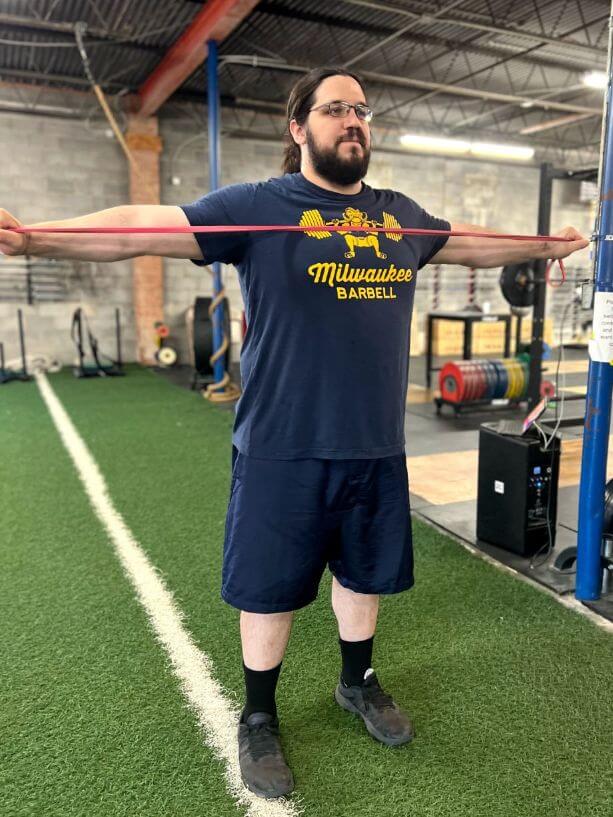
Like all good exercises, there are ways to change things up to keep progressing and avoid overuse injuries. Here are a few face pull variations to spice up your upper back game.
Seated Face Pull
When you have more stability, increased muscle activation goes to the working muscles (rear deltoids, trapezius, and rhomboids) and less to the ones that keep you upright. This variation works well if your goal is to build more muscle or you suffer from lower back pain. By sitting down, you can better maintain a stable upper body.
Resistance Band Face Pull
The cable machine face pull should be your go-to variation. But a resistance band is a viable exercise if you don’t have access to a cable machine. This variation has the advantage of ascending resistance, making you progressively work harder to lockout.
Half Or Tall Kneeling Face Pull
Taking the lower body out of the picture makes you less likely to “cheat” when performing the face pull exercise. And you’ll receive instant feedback if doing the movement improperly because you and the floor may become one. Furthermore, being in the kneeling position gives you additional hip mobility and core stability benefits.
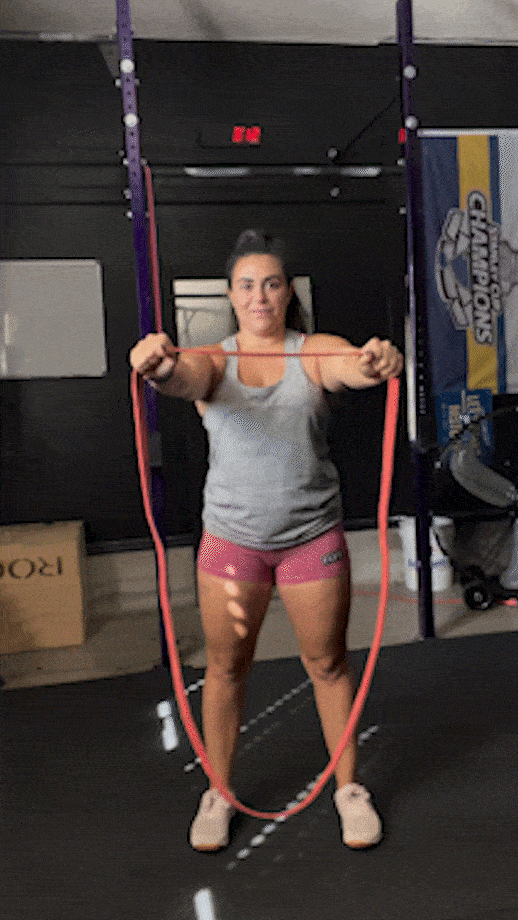
Banded Pull-Apart
The band pull-apart is a good alternative if you have nothing to anchor a band to. Similar to the face pull, a pull-apart works your upper back muscles as you use scapular retraction to pull the band toward your face. The main difference between the two movements is that your arms stay relatively straight through a pull-apart instead of bending at the elbows.
FAQs: Face Pulls
Are face pulls actually good?
The face pull is a good exercise to improve poor posture, improve the health and mobility of the entire upper body, and to add some meat to your upper back muscles. It is simple and a move you can often perform for strong shoulder muscles. And when you do the external rotation at lockout, it strengthens the rotator cuff muscles like the infraspinatus for better shoulder health.
How do you do face pulls correctly?
The key to performing face pulls correctly is to stay moderate with load, maintain chest up, and shoulders down posture, and not shrug the upper traps when pulling the attachment towards your face. If you remember those three things, you’ll go a long way to performing face pulls correctly.
Are face pulls safe?
Face pulls are safe when performed with good form and with a weight you can control for 8-20 repetitions. If you’re suffering from shoulder or elbow pain, let discomfort be your guide, and stop if you feel any pain. Be careful with the resistance band face pull because if the band stretches too far and breaks, you better duck quickly.
Are face pulls overrated?
As a strength exercise, dumbbell and barbell row variations allow you to build muscle in your upper back better. Face pulls are a perfect exercise to do in your warm-up, improve posture and shoulder mobility and add extra volume to your upper back area. So it depends on your point of view and what you use them for.


